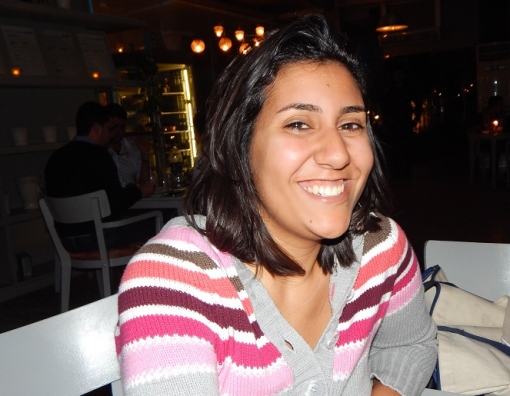 Egypt has a youth problem. According to official statistics, 31 percent of the population is under the age of 14, and 24 percent of the population is between 18 and 29. Integrating them into the social and political fabric of society is expected to be challenging, especially given the raised expectations of the revolution. Egypt also has an education problem. According to official statistics, 25 percent of the population over 10 years old is illiterate. According to UNICEF, student participation is generally not encouraged by teachers, and less than ten percent of schools meet national standards for quality education.
Egypt has a youth problem. According to official statistics, 31 percent of the population is under the age of 14, and 24 percent of the population is between 18 and 29. Integrating them into the social and political fabric of society is expected to be challenging, especially given the raised expectations of the revolution. Egypt also has an education problem. According to official statistics, 25 percent of the population over 10 years old is illiterate. According to UNICEF, student participation is generally not encouraged by teachers, and less than ten percent of schools meet national standards for quality education.
Egypt, of course, is well aware of these problems. Twenty-eight year old Joyce Rafla is part of the government’s answer for both. Last May, presidential media advisor Ahmed al-Muslimani handed the ‘White Book’ to President Abdel Fattah al-Sisi. It represented the completion of a project started under interim president Adly Mansour, tajdid al-nukhba, seeking to find new talent to eventually replace the old guard. The White Book contained the names of 152 Egyptian graduates of top notch universities worldwide. Joyce Rafla was included among ten from Columbia University, alongside Harvard, MIT, Stanford, Moscow, Tokyo, and the Sorbonne, among others.
A year earlier as the government was conducting its search, Rafla was invited with around twenty other graduates from the education field to produce a practical vision for the nation’s education system by 2030. The two month effort was part of an objective to design strategies to place Egypt within the top ten nations by 2050.
Rafla’s work in the committee must have caught the attention of important people. In August 2014 she received a phone call from the president’s office, asking her to be an advisor to Sisi. Three specialized councils have since been formed, all by presidential appointment, seeking balanced age and gender composition. Rafla is one of six females on the Education and Scientific Research Council, and lowers the average age of the eleven members to 40.
Rafla is a pedagogy and assessment officer at the American University in Cairo (AUC), and also a consultant for the Education Support Program funded by USAID. Her international connections may have been a factor in her selection, as with other AUC professors on the council. Tarek Shawki, the council head, has long experience with UNESCO. Malak Zaalouk is associated with UNICEF. And Amal Essawi worked as a researcher in the UK for ten years. Other council members come from the universities of Cairo, Alexandria, and Ain Shams. Represented also are experts from the National Research Center and the ministries of Education, Higher Education, and Communications. All members on the council are volunteers. Twice weekly meetings and preparation requires nearly two extra days of work on top of their normal responsibilities.
The overall diversity of membership represents a new advisory approach in the Sisi administration. Rafla explained that traditionally the Egyptian president had one advisor in each specialized field, but by contrast, Sisi desires a multiplicity of perspectives coming to consensus. The council stands outside the cabinet ministries, but must seek buy-in from these and other relevant institutions before they present ideas to the president.
And within this body of advice, Rafla speaks for the youth. “I am there to disrupt the normal order of things,” she told EgyptSource, adding that she has never felt overlooked due to her age. “Sometimes there are suggestions that won’t resonate well with a young person, that’s when I jump in.”
But quickly the council faced the accumulated frustrations of previous educational reform efforts. AUC held a panel discussion in November with five members of the council, four of which, including Rafla, are among its staff. The poorly chosen title, ‘Three Immediate Solutions to Egypt’s Education Crisis’ attracted a large crowd, but then their ire.
“I went to an event about education in Cairo this week hoping to hear about solutions,” wrote Amal Abou-Setta in al-Fanar Media. “Instead I felt like, yet again, I only listened to an elaborate description of the problems.” Rafla admitted the divergence between presentation and title, but clarified the three initiatives. Better investment in teacher training, a licensing system with ongoing testing for university graduates, and merit-based university education providing full scholarship primarily to students who continue to meet minimum benchmarks of success.
These are among 31 short, medium, and long-term projects the council submitted to Sisi on December 2. The meeting lasted two hours, during which the president gave extensive feedback and demonstrated genuine concern, Rafla said. It was their second meeting with Sisi, and they are scheduled to meet with him once every one to two months.
Rafla’s current role is to make an overview of all previous international education projects in Egypt, to recognize patterns of success and failure. She is also conducting field visits outside of Cairo and with relevant civil society organizations to strengthen the necessary cooperative environment.
But will it work? Rafla is optimistic, though fully aware of the challenges. The president has insisted that reform is needed urgently. But amid the criticism of some in her own generation, she sees one of her main tasks as encouragement. She can do so as long as she herself believes.
“If we have a good project, the president has the political will to reform education,” Rafla said. “The minute I feel it is not so, I will lose hope.”
Image: Photo: Jayson Casper
